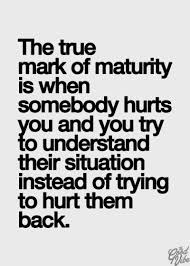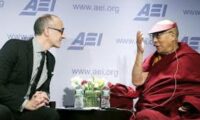
My Second Mountain
I’ve done a lot of thinking about aging, milestones, and accomplishments lately. I just sent off what may well be my last book. I’m helping plan my fiftieth college reunion. I used to be the youngest person in the room when I started teaching; now, I’m often the oldest one when I’m in a meeting.
At the same time, I’m no where near ready to retire. I have too much energy and the world has too many problems for me to hang it up and go play shuffleboard and go on cruises.
One’s Second Mountain
Then, I read David Brooks’s new book, The Second Mountain. As the title suggests, he talks about how lucky people (my term) climb two mountains. First, they succeed professionally with all the self-absorption that entails. Then–and here’s where luck and hard work come in–they climb a second mountain that tends to be “relational, intimate, and relentless (xvi).” In climbing the second mountain, we commit ourselves to new causes, relationships, and service to others, all that is greater than ourselves.
As I read his book which details his second mountain, so I thought a lot about mine. Then about the fact that many of my friends still have a lot to give. So, I thought about the themes he raises, including vocation, family, faith, and relationships. And, I realized that there is still plenty for me to do.
My Second Mountain
Brooks was lucky. He made it most of the way to the top of his second mountain pretty quickly. He faced some significant adversity and disillusionment in his life and got to the other side in a few short years. Most of us need longer.
My own second mountain has involved much of what Brooks talks about, including putting my own goals in second place after my commitments to social change and the relationships that I’m in. It hasn’t been easy. It still isn’t easy.
I do still have personal ambitions, though I’m reasonably certain that I will never make it to the Yankees–although with all of their injuries this season, you’ll never know for sure.
That’s where that statement comes in. If I’ve learned anything, it’s not to lash out at the people I disagree or even the people who have done me harm. I can and will disagree. The question is how do I disagree with them?
But mostly, I’m grappling with the fact that, at age 71, it’s now about me anymore.
It’s about what I can give to the communities I’m a part of and have a good time doing so.
For me, that means working on a few things:
- Building a movement that can produce change by reaching out to people who work “where Americans routinely take their conflicts” today
- Mentoring the young people I meet at AfP, George Mason, Oberlin, and elsewhere
- Most importantly, maximizing the way I live up to the values in the slogan that begins this post.
The Other Brooks and Warm-Heartedness
That has a concrete application in the world today. Like many others I know, I’m pretty angry at the state of political leadership around the world today in ways that go far beyond President Trump and American politics–though they both make me plenty angry.
However, if I’ve learned anything over the years, my vocation, in David Brooks’ terms, it’s to disagree differently. To treat my adversary with dignity and respect. Even warmth when possible. To learn whatever I can fro m him or her. And try to find a solution we are both happy with, knowing that sometimes we won’t get there.
m him or her. And try to find a solution we are both happy with, knowing that sometimes we won’t get there.
In the last few weeks, I read a book by another brooks, Arthur (no relation, but they’re friends) on just this topic. Arthur Brooks has done a lot of work with the Dalai Lama. Both in an op-ed they wrote together and in Arthur’s own book, he talks a lot about warm-heartedness.
That doesn’t mean we disagree. But we disagree differently and in a way that invites you to work things out with me.
Even more importantly, I take the first step. I don’t wait for you to do so.
In short, I’m making an affirmative statement that I will solve conflicts I get in with you, and I will treat you with good will.
My First Mountain Revisited
I first explored statements like these when I worked for the Beyond War movement in the 1980s. I had climbed my first mountain by then and we beginning to come down the other side and realize that it wasn’t all I wanted it to be.
Thirty years later, I’m getting there.
And it’s fun.
The views and opinions expressed in this article are those of the author and do not necessarily reflect the official policy or position of the Alliance for Peacebuilding or its members.
Also published on Medium.
